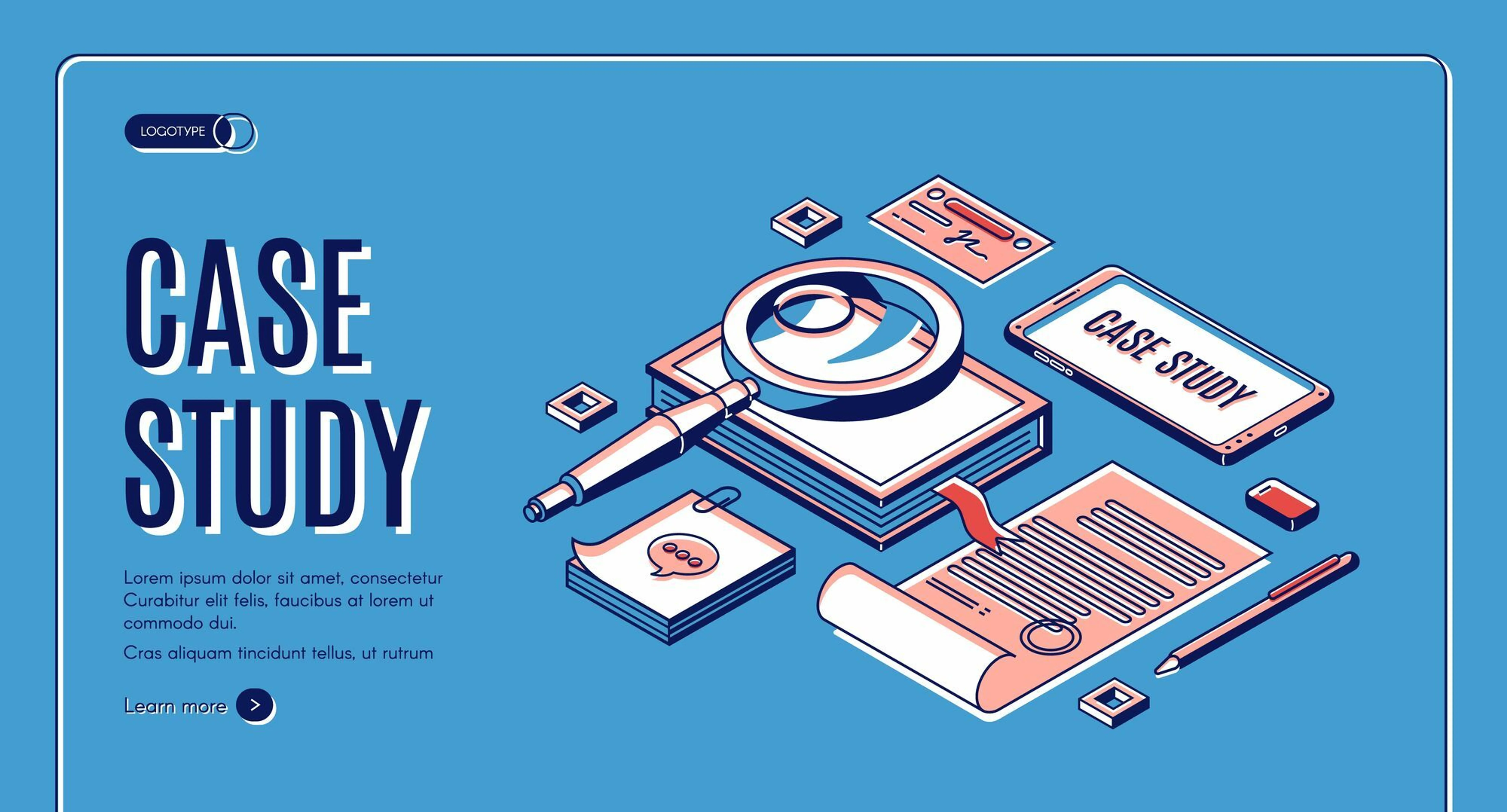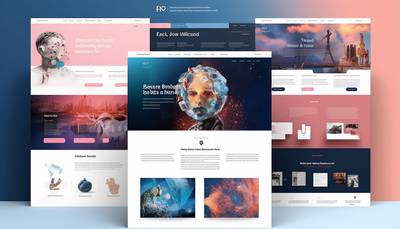When deciding on a website designer, it is worth: determining your budget and requirements well, checking the company's portfolio and case studies, verifying customer opinions and asking questions that will help you find out whether the contractor understands your industry. All these elements seem intuitive, but the question still remains: Cool, but how to do it? We will answer this question comprehensively in the article below.
After all, a website is not only a business card, but also a very important tool in building relationships with customers, sales and promotion. Therefore, the decision to choose the right contractor should be preceded by solid preparation and understanding what exactly we want to achieve.
In this article, we will look at what steps you should take to choose a website contractor who will not only meet your expectations, but will also be able to advise and propose the best solutions tailored to the individual needs of the company.
Should you really commission a website?
The decision to commission a website is a step that can significantly impact the future of your online business. However, before you decide to cooperate with a professional or agency, it is worth considering a few issues that may help you assess whether this is the best time and way to develop your online presence.

You're just starting out and have a limited budget
If you are just starting your online business adventure, it is possible that a small budget is one of your main limitations. In this situation, consider whether it is worth using the available tools for creating websites yourself, which offer many templates and do not require advanced technical knowledge.
Of course, a website created by a professional will most likely be incomparably better than the one you create yourself. Nevertheless, a self-created website has one very important advantage over no website at all: it exists! However, you must remember that this is a temporary solution and as soon as additional funds become available, it is worth investing in a website created by professionals.
You want to stand out from the competition
If your goal is to create a unique and distinctive website that will reflect the specifics of your brand or product, outsourcing it to professionals may be the best choice. Website design experts can adapt the appearance and functionality of the website to the individual needs of your company, which can attract and interest a larger group of potential customers.
Is your time more expensive than the contractor's time?
Consider how much time and energy you are willing to devote to creating the website. If running a business requires you to focus on other aspects of your business, it may turn out that outsourcing this work will save you not only time but also nerves. A professional contractor will handle everything from design to implementation, allowing you to focus on growing your business. Remember that how much a website costs may surprise you.
Additionally, you must take into account that a website development company will complete the project much faster than you, so even if your hourly rate is lower than the company's rate, it is worth considering outsourcing the project to a specialist.
Specify your requirements
Before you start looking for the perfect contractor for your website, it is important to understand exactly what you need and what your expectations are. Determining your requirements will not only make it easier for you to communicate with potential contractors, but will also help you evaluate offers and make decisions at a later stage.

Define the purpose of your website
Think about the main purpose of your website. Should it be a sales platform, a company showcase, a thematic blog, or maybe something completely different? Clearly defining your goal will help you determine not only the functionalities that are necessary for you, but also the style and tone of communication that will be most appropriate.
Choose functionalities
Consider the functionalities that are necessary to achieve the purpose of your website. Maybe you need an online store with payment integration, a contact form, a photo gallery, a reservation system? The list of necessary functionalities is needed by the contractor to offer you appropriate solutions and determine how much the website design will cost.
Define your target group
Who is your recipient? Understanding the target group is necessary to create a website that is attractive and intuitive to use for your customers. Age, interests, shopping habits – all this affects how the website should be built and designed.
If you can't determine any of the above, it's okay. The website creator should be able to assist you in this process without any problems. However, it is worth trying to think about these aspects yourself beforehand, because no one knows your customers better than you do.
However, keep an open mind. It may happen that your proposals do not fit into the set of good website development practices. Then the company creating the website will most likely suggest an approach that will work better. After all, they are the specialists and you are the client, so it is worth trusting them.
Openness is needed on both sides
Open communication between you and your potential website designer is essential to the success of the project. How both parties approach the exchange of thoughts, ideas and feedback has a direct impact on the quality of cooperation and the final effect of the work.
Be open to suggestions
Remember that when you decide to cooperate with professionals, you benefit not only from their technical skills, but also from their experience and knowledge of trends in website design. Be open to their suggestions regarding functionality, design and SEO optimization. Often, what seems unimportant or too novel can be crucial to the success of your website.
Express your expectations clearly
On the other hand, it is important that you are also open in communication with your contractor. Express your expectations, doubts and needs clearly and decisively. If you have a specific vision of what your website should look like, share it. Remember, however, that the key is to find a happy medium between your expectations and industry best practices.
Feedback is necessary at every stage of website creation. Don't hesitate to provide constructive criticism and point out elements that you think need improvement or change. If the contractor doesn't like it, it's worth considering whether everything is okay. The standard provision is to establish a specific number of corrections that can be implemented within the agreed price.
Portfolio and case study
When entrusting your website to an external company, you should know what results you can expect. You can do this by familiarizing yourself with the company's portfolio and case studies, i.e. examples of specific implementations. They can provide valuable knowledge about the experience, skills and working style of a potential contractor. They also allow you to assess whether a given company or freelancer is able to meet your expectations and needs.

Case studies - stories behind the projects
Case studies are more than just a project presentation. These are stories describing what challenges the contractor faced, what solutions were used and what effects they brought. Thanks to case studies, you can understand the designer's thinking process and see how he or she can solve problems. Look for case studies that are detailed, contain data and facts, as well as customer opinions.
The final appearance of the website is something that everyone pays attention to, but few people describe the process. Most companies ignore problems that occurred during implementation. The truth is that there will definitely be some difficulties and how the contractor approaches them is very important.
Find reviews and references
In addition to the portfolio itself, it is also worth looking for opinions and references from previous clients. They may be posted on the contractor's website, but it is also worth looking for them on external portals or contacting former clients directly. These opinions can provide information not only about the final result of the work, but also about the cooperation process itself.
Checking the service - demo version of the website
Before making the final decision to commission the creation of a website to a specific contractor, it is worth asking for access to demo versions of already completed projects. Companies increasingly often have a website prepared somewhere containing the most typical elements on the website. This will allow you to check if everything works as well as described. Remember that paper will accept everything.
What to look for?
- Responsiveness: Make sure that the website displays well on mobile devices and adapts to different screen resolutions.
- Speed: Pay attention to page loading time. Pages that load slowly can negatively impact user experience and search engine positioning.
- Functionalities: Test all implemented functions, such as contact forms, photo galleries or the reservation system. It is important that they work flawlessly.
- Navigation intuitiveness: Website navigation should be intuitive and simple. The user should easily find the information he is looking for.
Make sure they understand your industry
Knowledge of the industry not only speeds up the website creation process, but also ensures that the final product will meet the needs and expectations of your customers. Here are some tips on how to check if a potential contractor has experience and knowledge in your field.
Ask key questions
Start by asking the contractor a series of questions about your industry. Ask if they have worked on similar projects before, what the challenges were and what solutions were used. Ask for examples of websites in your industry that they have worked on and for references from clients in that field.
Assess understanding of your goals
It is important that the contractor not only knows your industry, but also understands the business goals you want to achieve with your new website. Discuss your expectations and check whether the solutions they propose are consistent with your priorities and whether they address industry-specific challenges.
Analyze functionality proposals
A contractor with experience in your industry will be able to propose specific functionalities that can support your business. These may include, for example, integrated booking tools, online stores tailored to the specificity of products, or social functions that engage users.
Remember that choosing a contractor who understands your industry is not only a matter of their experience, but also their willingness to learn and understand the unique aspects of your business. Such cooperation increases the chances of creating a website that will effectively support your business goals and communicate with your target group.
Check if they have a well-defined process

Why is a well-defined process important?
- Predictability: A well-defined process provides a clear plan of action from the beginning to the end of the project. Thanks to this, you will know what to expect at every stage, which reduces the uncertainty and stress associated with the implementation of the project.
- Communication: The process should include stages at which communication with the client is planned. Regular meetings, reports and progress updates allow you to keep track of the project's development and make corrections if necessary.
- Quality: The process also ensures that all key project stages such as requirements analysis, design, implementation and testing are properly addressed. This, in turn, translates into a higher quality of the final product.
- Efficiency: Defined procedures and work stages increase the efficiency of project implementation. Thanks to this, projects are implemented faster and the risk of delays is minimized.
How can you tell if a contractor has a well-defined process?
- Documentation: A professional contractor should be able to provide documentation describing their process for completing the project. This may be a work schedule, a description of individual stages or quality control procedures. Companies often boast about their collaboration process on their website.
- References: Asking about the experiences of previous clients can also provide clues about the effectiveness and transparency of the process.
- Meetings and communication: During initial meetings, pay attention to whether the contractor clearly communicates the next stages of cooperation and what communication and project management tools it proposes. Remember that it is better to stop cooperation in advance.
Security and support after website launch
Once the website is launched, work on the project does not end. It is important to provide continuous technical support and security measures that will protect the website against potential threats. In this section, we will discuss the key aspects that are worth paying attention to to ensure that your website stays safe and functions smoothly at all times.
Regular updates and maintenance
As soon as your website goes live, it's important to establish a plan for regular updates and maintenance. Technology is constantly developing and with it new threats appear. Regular updates to your software, plugins and themes are crucial to keeping your website secure. Additionally, website maintenance may include optimizing databases, removing junk files, and improving the overall performance of the website.
Providing technical support
It is necessary to ensure constant access to technical support. Even after carefully designing and launching a website, unexpected problems or questions about its operation may arise. Good agencies offer technical support after the website launches, which may include help with troubleshooting, technical advice, and help implementing new features.
Communication and support
A communicative contractor is one who not only responds quickly to messages, but is also able to provide information clearly and understandably, discuss various options and clarify any doubts. A good contractor should be available through various communication channels, such as e-mail, telephone or instant messaging. This allows you to quickly solve problems and effectively introduce changes to the project.

The dangers of poor communication
Poor communication with the contractor can lead to a number of problems that can negatively impact the website design:
- Project delays: Failure to quickly respond to questions or needed changes may lead to project delays, which in turn may delay the website launch.
- Design misunderstandings: Poor communication can lead to misunderstandings about design specifications, functionality, or expected results. This may result in the need to make expensive corrections at a later stage.
- Increased costs: Ambiguities and delays can lead to additional costs, both directly (by requiring changes to the project) and indirectly (by delaying the achievement of business goals).
- Frustration and loss of trust: Difficulties in communication can lead to frustration on both sides, which negatively affects the relationship with the contractor and may lead to loss of trust in his competences.
Make sure they are constantly evolving
Why is continuous development important?
- Security: Web technologies are evolving rapidly, and with them, the number of security threats is increasing. A contractor who regularly updates his knowledge is better equipped to protect your site from new threats.
- Compatibility: New standards and technologies improve website compatibility across devices and browsers, providing a better experience for users.
- SEO optimization: Search engine algorithms are constantly updated. A provider that tracks these changes can better optimize the site for better search rankings.
- Innovation: A constantly developing contractor can offer new, innovative solutions that will improve the functionality and aesthetics of your website.
How can you tell if a performer is constantly developing?
- Portfolio and references: Look for evidence that the contractor regularly updates his skills and uses modern solutions in his projects.
- Knowledge of the latest trends: When talking to a potential contractor, ask about the latest trends in web design and technological development. Their answers can give you insight into their level of knowledge and commitment to continuous improvement.
- Blogs and publications: Contractors who run technology blogs or publish articles on the latest trends and technologies demonstrate a high level of commitment to their craft.
Summary
Remember that in order to make the right choice, it is necessary to precisely define your own needs and expectations, both in terms of the functionality of the website and the course of the entire cooperation. It is also important to familiarize yourself with the portfolio of potential contractors to assess their experience and work style. In addition, verifying the opinions of previous clients and open communication with the contractor can significantly impact the success of the project.
The decision to commission a website should not be made lightly, especially for beginner entrepreneurs with a limited budget. It is worth considering whether creating a website yourself using available tools would be a better, temporary solution. However, for those who want to stand out from the competition and offer users a unique experience, professional website development may prove to be an investment that will quickly pay off.
FAQ
How long does it take to create a website?
The project implementation time may vary significantly depending on the scope of work, website functionality and level of design advancement. Simple business card websites can be ready in just a few weeks, while more complex projects, such as online stores or portals, may require several months of work. It is important to establish the expected completion date with the contractor at the very beginning.
Do I need a responsive website?
Yes, nowadays website responsiveness, i.e. its ability to adapt to different screen resolutions and devices, is an absolute necessity. Users use the Internet on a variety of devices, and a website adapted to all of them provides a better user experience and is better rated by search engines.
How can I check if a contractor is trustworthy?
Checking reviews and references from previous customers is a good start. You can also ask for case studies or examples of projects they have worked on. It is also important to evaluate the communication with the contractor - whether he answers your questions quickly, whether he is open to suggestions and whether he explains the process in a way that you understand.
Will I be able to update the website myself?
Yes, most modern websites are based on CMS systems that enable independent content management without the need for programming knowledge. When choosing a contractor, it is worth asking about CMS training so that you can freely make changes to the website.



